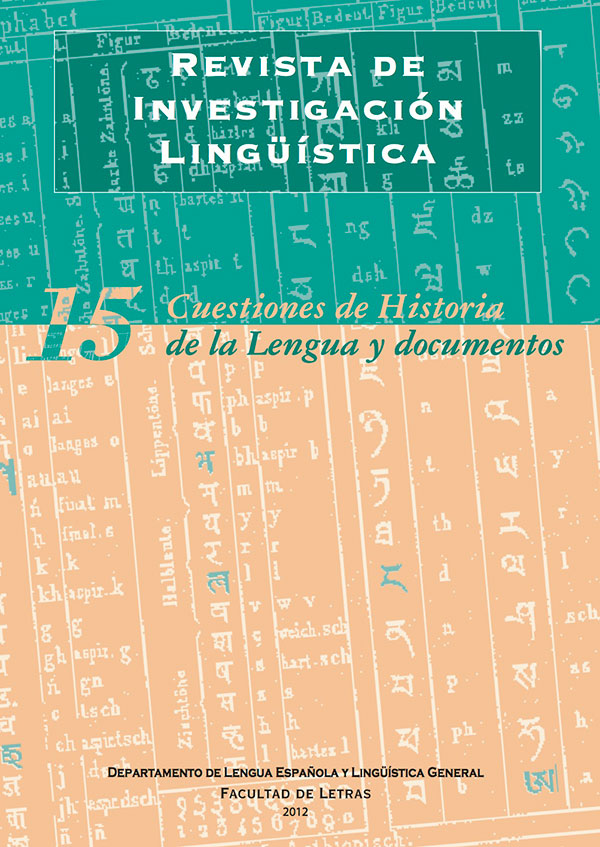La transferencia del análisis lógico al gramatical en España durante el primer tercio del siglo XX: el caso de Ezequiel Solana (1863-1931)
Resumen
Se analizan en este trabajo los contenidos del Tratado de análisis lógico y gramatical de la lengua castellana del pedagogo español Ezequiel Solana (1863-1931) y se realiza un análisis comparativo de las tres ediciones (1911, 1921 y 1924[?]) encontradas de este libro. Las ideas del autor se orientan hacia un tipo de enseñanza conservadora basada en el humanismo espiritualista cristiano, lo que se refleja en sus ideas sobre el lenguaje, considerado siempre en relación con el pensamiento. Nos centramos en su idea del concepto ‘análisis’, del que distingue dos tipos: lógico y gramatical, aunque se observan ya vacilaciones por parte del autor a la hora de establecer límites y fronteras entre un tipo de análisis y otro. Ezequiel Solana se inscribe, pues, en la línea de otros autores contemporáneos, que realizan ya un trasvase terminológico y conceptual del plano lógico al plano gramatical, lo que supuso un gran enriquecimiento para la moderna gramática y el análisis de sus elementos.Descargas
-
Resumen364
-
PDF303
Las obras que se publican en esta revista están sujetas a los siguientes términos:
1. El Servicio de Publicaciones de la Universidad de Murcia (la editorial) conserva los derechos patrimoniales (copyright) de las obras publicadas, y favorece y permite la reutilización de las mismas bajo la licencia de uso indicada en el punto 2.
2. Las obras se publican en la edición electrónica de la revista bajo una licencia Creative Commons Reconocimiento-NoComercial-SinObrasDerivadas 4.0 (texto legal). Se pueden copiar, usar, difundir, transmitir y exponer públicamente, siempre que: i) se cite la autoría y la fuente original de su publicación (revista, editorial y URL de la obra); ii) no se usen para fines comerciales; iii) se mencione la existencia y especificaciones de esta licencia de uso.
3. Condiciones de auto-archivo. Se permite y se anima a los autores a difundir electrónicamente las versiones pre-print (versión antes de ser evaluada) y/o post-print (versión evaluada y aceptada para su publicación) de sus obras antes de su publicación, ya que favorece su circulación y difusión más temprana y con ello un posible aumento en su citación y alcance entre la comunidad académica. Dulcinea: verde. OPF.









